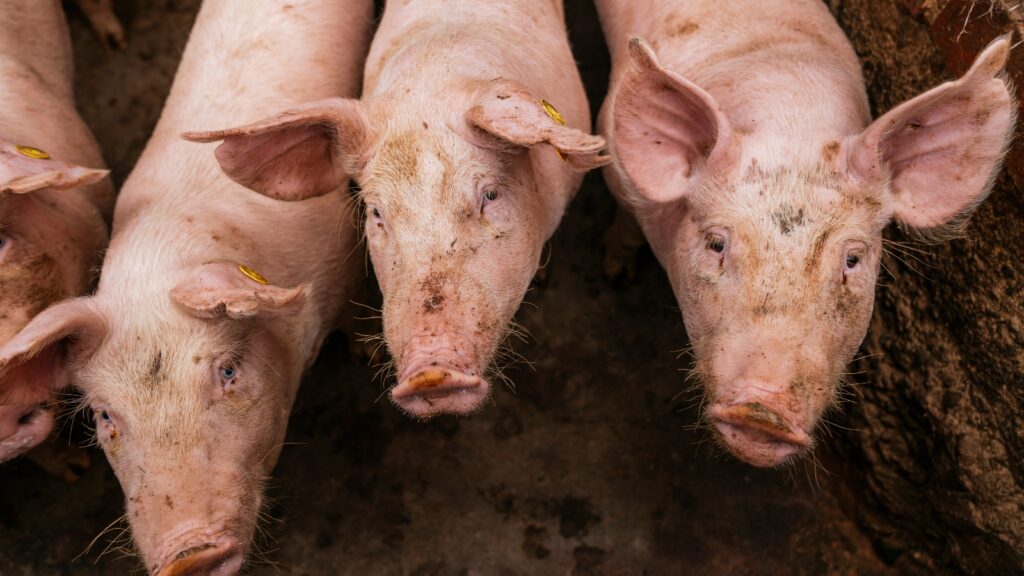According to US federal reports, F.B. Purnell Sausage Co’s workers kick and beat pigs before they are sent to slaughter.
The Kentucky-based company turns over $70 million every year and is known for its signature Old Folks sausages. The taglines of the sausage brand are “It’s Goo-od!” and “The Best Country Sausage Money Can Buy.”
But People for the Ethical Treatment of Animals (PETA) says that operations at the company’s slaughterhouses are “anything but gooo-od.”
The world’s biggest animal rights organization wrote to F.B. Purnell Sausage’s president, Fred Todd Purnell, asking him to make “immediate changes” to prevent animal suffering.
PETA cited federal documents as evidence that workers for the company had beaten, kicked, and given repeated electric shocks to pigs.
The letter called for Purnell to release footage of the slaughterhouse’s processes. Or, “at the very least,” permanently reassign the workers to “jobs that do not involve having contact with any live animals.”
It maintains that the workers are in violation of Kentucky’s anti-animal cruelty statute.
Pig abuse in the meat industry
This is not the first time PETA has called out F.B. Purnell Sausage Co for abusing animals. Last year, the non-profit obtained the “disturbing report” of a pig receiving six electric shocks on her head and over her heart.
At the time, PETA called for an investigation.
Every year, the meat industry slaughters around 1.5 billion pigs. And F.B. Purnell Sausage Co is far from the only company in the industry that abuses its animals.
In Aberdeenshire last year, workers on a farm supplying major UK supermarket chains Tesco and Lidl (who later cut ties) were filmed hitting piglets with hammers and swinging them around. Activists also found pigs in filthy conditions, and some had meningitis.
Animal Equality UK released the undercover footage, which it claimed depicted several legal violations.
Vet and professor of animal welfare Andrew Knight told the Independent at the time: “The suffering of these ill and injured pigs would have been very considerable, yet no signs of appropriate veterinary care were visible.”






